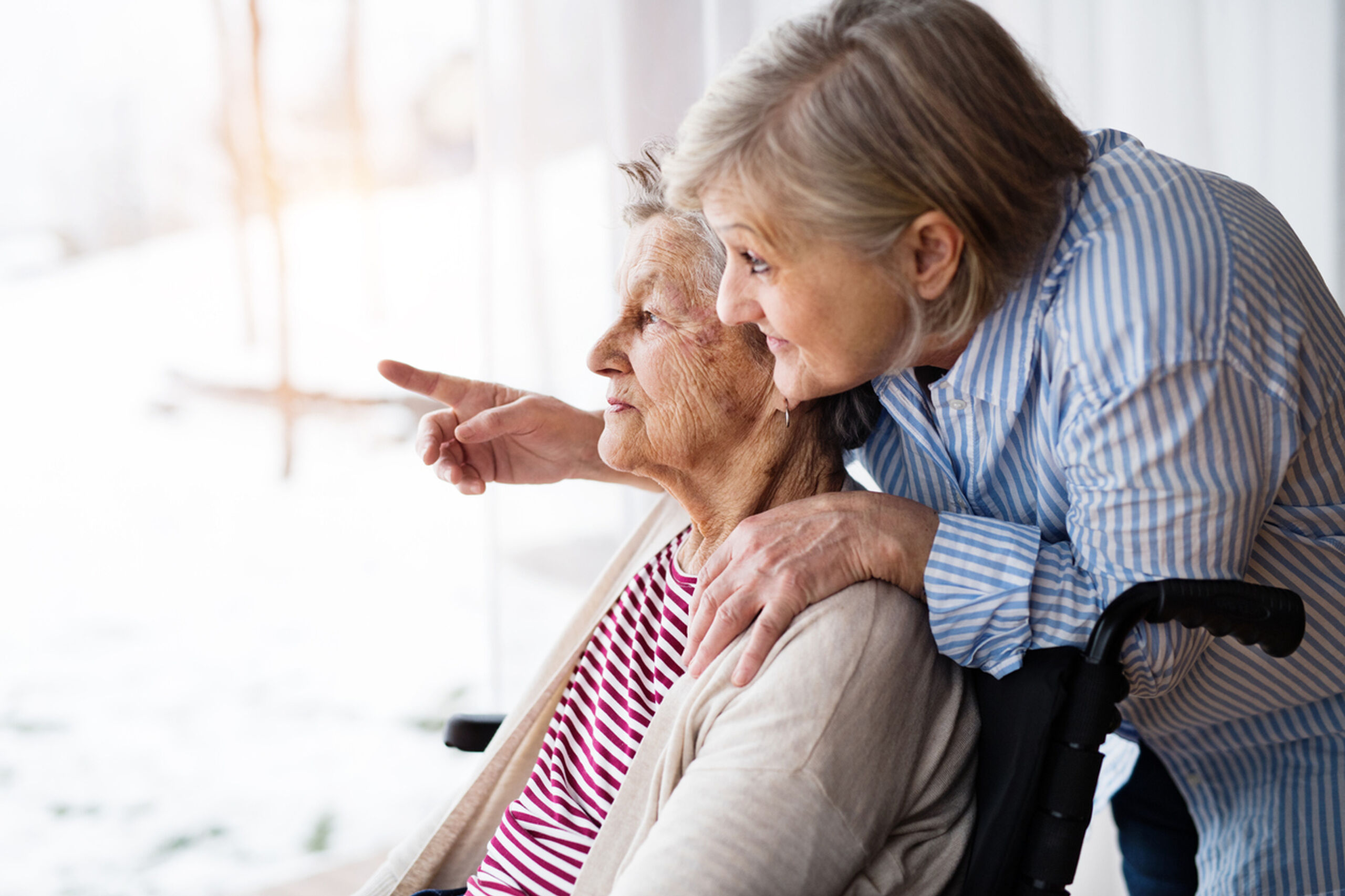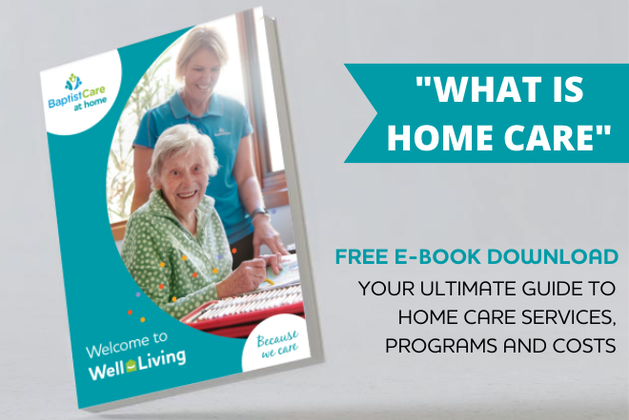Preparing for winter
5 simple steps to keep yourself and your loved one warm, safe and healthy this winter.
Scroll to Explore

20 May 2022
Stories
| Home Care
Winter is a magical time of year: crisp blue skies, frost-tipped grass, nature in waiting. The colder weather is a great chance to snuggle down and get cosy, but the cooler, darker days can also present a number of health challenges for older people. Follow these five tips to keep yourself or an older loved one warm, safe and healthy this winter.
1. Prepare your home.
There are many wonderful things about ageing: becoming wiser, having the freedom to explore interests and connect with friends, as well as the time to reflect on life’s experiences. Yet, the body’s ability to cope with the cold isn’t one of them. Older adults tend to lose heat faster than younger adults and ageing can dampen our natural defences against the cold, like shivering. Keeping warm is essential, or hypothermia can be a real risk. Winter proof your home by ensuring you have adequate heating to maintain a temperature of 20-24 degrees in the rooms you use. While many of us are cost conscious, heating is not something to skimp on. Reduce operational costs by making sure heaters have been serviced, you have a good seal on rooms and use curtains to reduce heat loss. Rooms should also have adequate ventilation with access to fresh air. Asking your service provider to pull out your warm blankets from the wardrobe and help get them ready to use is also a good idea.
2. Get a flu shot.
You’ve seen the advertisements and heard the advice from your GP; they are wise words, and worth repeating here. Winter is the cold and flu season and elderly people are among the most at risk from serious complications if they get ill. As our bodies age, our immune system does too, and is less effective at fighting illness. A bout of flu can open the way for serious complications such as heart attack and stroke. Remember, with the cold air outside, you will likely be spending more time indoors where it’s warm. Without the same level of fresh air and sunshine, germs and flu can spread more easily. It is simple to protect yourself. Plan a visit to your GP to get the free flu vaccination provided to people over 65. Service providers have made flu shots for all health workers mandatory to help minimise the spread of the flu through the peak flu season.
3. Keep warm outdoors.
If you’re heading out, rug up; grab your favourite coat, scarf, hat and gloves. In cold conditions, our bodies can lose heat quickly through the hands, feet and head. Extreme cold can lead to hypothermia, which could lead to heart attack, kidney problems and liver damage. Keep an eye on the weather and if it looks like being particularly chilly, wear layers of clothing to keep yourself warm. Don’t forget that a heavy wind can rapidly reduce your body temperature. If it’s raining, protect yourself with an umbrella or raincoat and be sure to change out of damp clothes and dry your hair as soon as you can. If you have a condition such as arthritis or Parkinson’s and find it difficult to dress yourself and ask your provider to visit and assist in getting you ready.
4. Take extra care in slippery environments.
With our relatively mild winters, most parts of Australia don’t have quite the same problem with winter snow and ice as countries in the Northern Hemisphere. That said, in many parts of the country, especially away from the coast, morning frosts are experienced, and with them icy conditions. Winter also brings shorter days with less light, cold weather which reduces blood flow to our limbs, and the need for heavier layers of clothing, all of which can make getting around more difficult. Whether you live in residential aged care or use home care health services, tread carefully and take extra care when moving around in winter; perhaps consider some simple home care modifications or the seasonal use of a walking stick or frame or mobility scooter.
5. Be aware of the changes to your body.
As with hotter months, our bodies respond to changes in the climate around us. It is important to remember that the colder temperatures affect a range of bodily systems, and it is not just the risk of hypothermia that we should be mindful of. Our hearts have to work harder to maintain body heat, increasing blood pressure and the risk of heart attack. If you have a thyroid condition, your body may have trouble maintaining a constant temperature, and diabetes can make it difficult for the body to heat evenly. Use your in home care service provider to help you make visits to health professionals to ensure you stay in top shape.
Click the link below to learn more about BaptistCare's
Home Care Packages | Home Care Services | Cost of Home Care Packages | How to Apply for Home Care.
Download our free E-book.
For us, it’s all about you. You are introduced to your own dedicated Care Facilitator who gets to know what is really important to you. This is your person. They will action and manage our friendly, multi-disciplinary care team and our wider network of quality service providers to meet your unique needs, wants and priorities.
Download our comprehensive E-book to learn more about Home Care Programs, Home Care Services and Home Care Costs.

Make an Enquiry
If you would like to know more, please contact us on 1300 275 227 or complete the enquiry form and one of our customer representatives will be in touch.